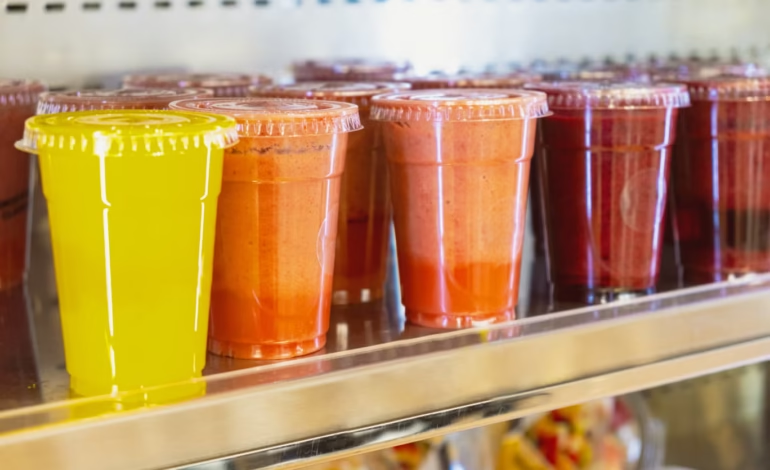Wellness smoothies have collagen, creatine and matcha in them, but are they worth the price you’re paying for them?

At Elevate, a sleek new smoothie bar tucked inside London’s Royal Exchange, you’ll find “the glow” – a vivid pink smoothie made with strawberries, pitaya (also known as dragon fruit), collagen, hyaluronic acid and yoghurt. The price is £8.90, but most customers don’t stop there. With add–ons like prebiotics, bee pollen and creatine at £1 a scoop, this drink can quickly hit £15 – roughly what most Londoners spend on their entire lunch. Or on a “cheap” martini.
Drinks like The Glow promise glowing skin, gut health, enhanced energy and even improved mental clarity. But are these glossy, ingredient-packed blends the future of nutrition, or just another overpriced lifestyle product dressed up in the language of health?
To understand the wellness smoothie boom, we need to look across the Atlantic. At Erewhon, the ultra-luxury grocery chain in Los Angeles, smoothies became status symbols almost overnight. Hailey Bieber’s “strawberry glaze skin smoothie”, which claimed to support skin health thanks to collagen peptides, sea moss gel and hyaluronic acid, reportedly sold 40,000 units a month at $20 a pop. Soon came collaborations with Olivia Rodrigo and Sabrina Carpenter.
These drinks are undoubtedly beautiful: layered, colour-coded and wrapped in aspirational branding. They aren’t just smoothies – they’re on display. The trend didn’t take long to cross the pond. In London, smoothie menus at places like Soho Health Club and Elevate mirror Erewhon’s aesthetic and ingredients. Even Loewe joined in, launching a limited-edition marble-effect matcha smoothie as part of its May 2025 pop-up at Selfridges.
It’s no longer just about what you drink – it’s what that drink says about you.
At the core of these products is a recurring cast of functional ingredients: collagen peptides, hyaluronic acid, sea moss gel, lion’s mane, adaptogens, protein powders, prebiotics and fruit-heavy bases like banana and pitaya. They’re sold as beauty boosters, brain enhancers and energy stabilisers – often with science-adjacent language to back it up.
“Erewhon-style smoothies blend wellness trends with a premium aesthetic, offering nutrient-dense, thoughtfully curated beverages that appeal to those seeking convenient, health-focused options,” says Belle Amatt, expert nutritionist at W-Wellness. “While many of the ingredients used – such as adaptogens, antioxidants and collagen – can offer benefits as part of a broader, balanced diet, the health claims surrounding these drinks are often more suggestive than scientifically verified.”
She adds: “Their appeal lies as much in the experience, branding and aspirational lifestyle they represent as in their nutritional content.”
Still, not all the science is purely decorative. Some ingredients in these blends do have potential health benefits – if used properly and consistently. Collagen, for example, has been linked to improved skin elasticity and joint support, while hyaluronic acid and sea moss may contribute to hydration and micronutrient intake.
“It’s really refreshing to see somewhat of a shift in behaviour with consumers on the whole becoming more and more inclined to actively take steps to improve their wellbeing,” says Dr Lena Rebecca Larsen, a nutrition specialist at More Nutrition.
She acknowledges that functional ingredients like collagen peptides and hyaluronic acid can support genuine wellness benefits – but only under the right conditions. One of her main concerns is that many smoothies don’t include enough of these active ingredients to be effective, or fail to combine them with key cofactors like vitamin C, which enhances collagen synthesis.






